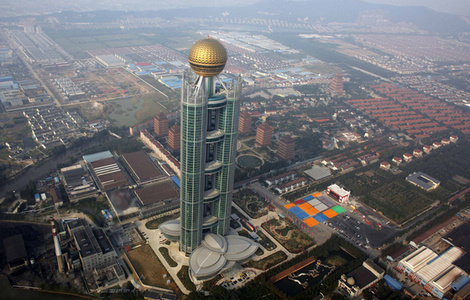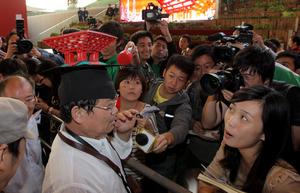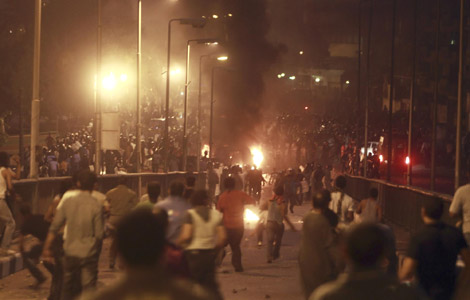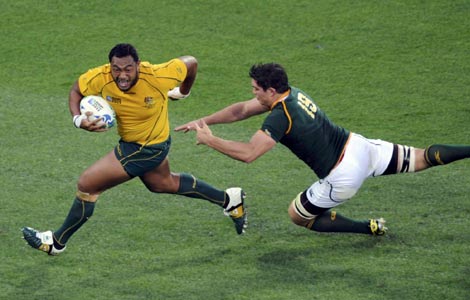|
|||||||||||
LOS ANGELES- The failure of the US mainstream media to dig into the problems and report greedy practices by the Wall Street and government wrongdoings was part of the reason so many Americans joined the Occupy Wall Street protests in dozens of US cities, a communication expert said.
Chunsheng Bai, professor of communication studies at the California State University in Los Angeles, told Xinhua Saturday in an interview that for a long time, the US mainstream media had done very poorly in its role to report the negative things such as government corruptions, greedy practices by the Wall Street, big banks and rich corporations.
The tradition for the mainstream media to dig into the problems of the government and corporations had been gradually changed or forgotten.
As a scholar in communication studies, the professor said he had seen more under-table deals among the mainstream media, the government and big corporations.
The mainstream media became more cooperative than before with the government officials and corporation CEOs, he added.
"You can see more negative reports on world news with other countries, but less negative reports on the US news," said Professor Bai, who teaches a variety of undergraduate and graduate courses, such as Communication Theory, Intercultural Communication, and Communication and Leadership.
He said that could explain why the mainstream media failed to report the Occupy Wall Street protests from the very beginning.
Bai, whose primary research is in the areas of globalization, intercultural and business communication, said the Americans suffered a lot during the economic recession and their anger over the Wall Street, big banks and greedy corporations had been on the increase. However, they found the mainstream media did not represent them to voice them out.
"I think those participants of Occupy Wall Street, Occupy Los Angeles and other protests in many US cities just feel frustrated. They want to let their voices heard, and the protests will help them achieve the goal," Bai said.
However, the professor is not optimistic on the future of the protests. He said although the Occupy Wall Street movement was gaining momentum in many US cities, there were no focused demands and no strong leaders.
He compared the movement to the anti-war protests in the 1970s and civil rights movement in the 1950s and 1960s, saying that those movements all had strong leaders and focused demands. But this time, there was no focus.
Those protesters were angry over the Wall Street and frustrated with the government, but there was no climate in the country to launch a social movement like that in the 1960s and 1970s to reform the Wall Street and the government, he said.
In his view, those protesters could take the opportunity to vent their anger, but it was unlikely they could achieve their goals.
Right now, Bai said, the White House led by President Barack Obama seemed to be happy with the protests, as Obama, a Democrat, wanted to take advantage of the protests to put pressure on Republicans to push forward his plans to tax the rich and reform the health care system.
However, Democrats were very careful in their support of the protests. They only supported those they thought would be beneficial to their interests, he added.
He said both Democrats and Republicans were taking the "wait-and-see" policy. If they realized the Occupy Wall Street movement could be a plus for the 2012 presidential election, they would take actions, Bai said.
According to Bai, Democrats could possibly benefit from the movement, but it remained too early to tell, because most of the Occupy Wall Street protestors are young Americans, who supported Obama in his 2008 presidential election, but now they feel frustrated since many of the promises Obama made during election campaign have not been realized.
Hot Topics
Libya conflict, Gaddafi, Oil spill, Palace Museum scandal, Inflation, Japan's new PM, Trapped miners, Mooncake tax, Weekly photos, Hurricane Irene
Editor's Picks

|

|

|

|

|

|







